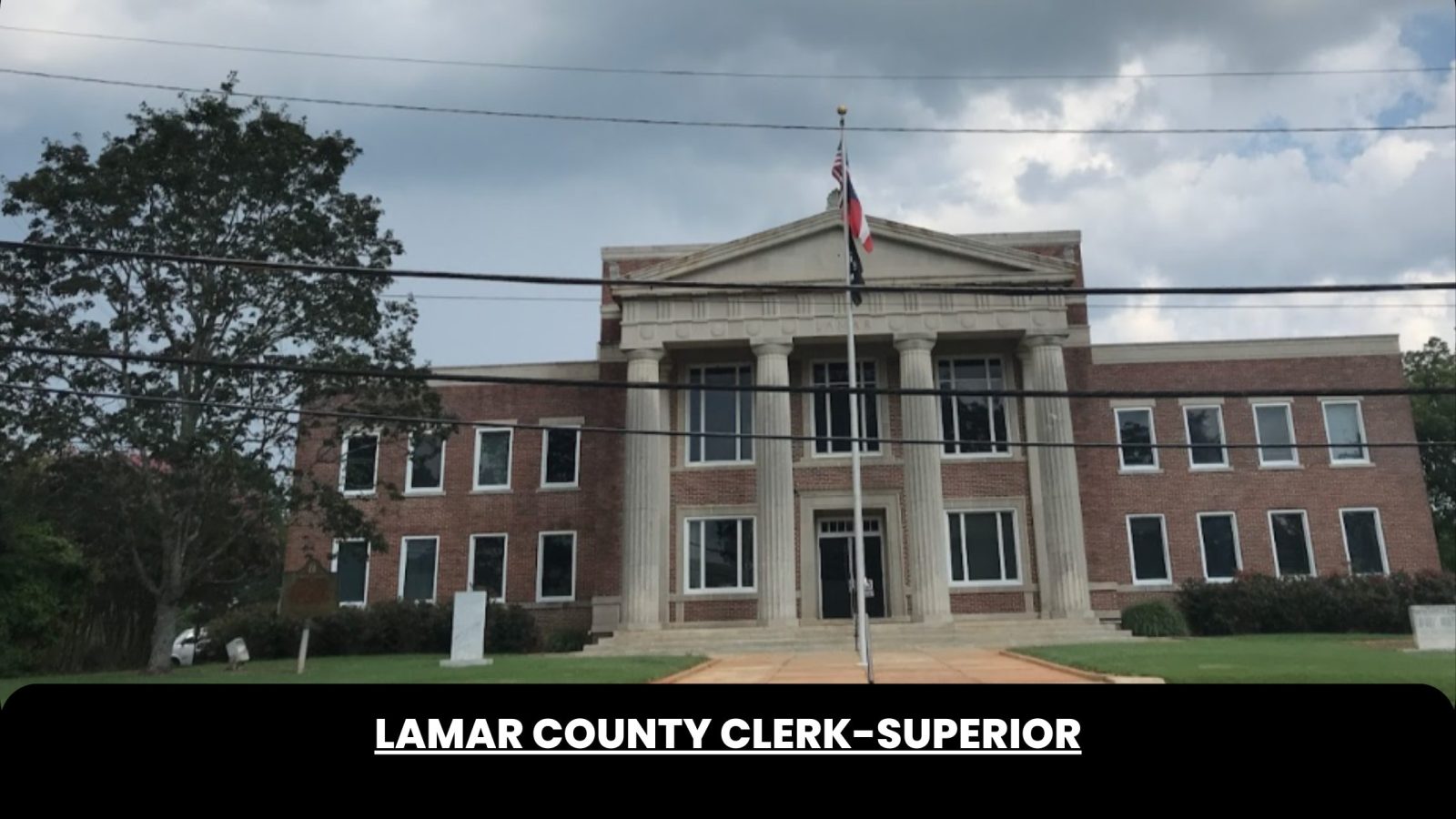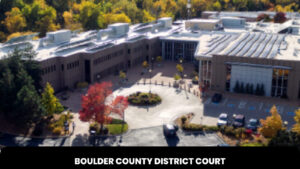Lamar County Clerk-Superior: Ensuring Efficient Administration and Public Services
Time
Working Hours:
Monday: 8 am–5 pm
Tuesday: 8 am–5 pm
Wednesday: 8 am–5 pm
Thursday: 8 am–5 pm
Friday: 8 am–5 pm
Saturday: closed
Sunday: closed
Connect with a Attorney
Introduction
In the vast landscape of county administration, the role of the Lamar County Clerk-Superior stands as a pivotal pillar in maintaining effective governance and providing crucial services to the public. This article dives into the world of the Lamar County Clerk-Superior, exploring their responsibilities, qualifications, services, and the significance they hold within the administrative structure.
Role of the Lamar County Clerk-Superior
The Lamar County Clerk-Superior plays a vital role in overseeing the administrative operations of the county. They are responsible for the management and preservation of official records, processing various legal documents, and providing critical support to the judicial system. Additionally, the Clerk-Superior ensures the smooth functioning of the office, guaranteeing timely and accurate service delivery.
Responsibilities and Duties
The Clerk-Superior handles an array of responsibilities, including record-keeping, managing court documents, issuing licenses, and providing assistance to the public. They maintain civil and criminal case files, process marriage licenses, and handle the recording of property deeds. Furthermore, the Clerk-Superior administers oaths, organizes juries, and coordinates court proceedings.
Importance of the Clerk-Superior Office
The Clerk-Superior office plays a significant role in maintaining the transparency and integrity of the judicial system. By meticulously managing records, the office ensures the availability of accurate and up-to-date information, enabling fair and efficient legal proceedings. Moreover, the services provided by the Clerk-Superior office are crucial for individuals and businesses alike, facilitating the smooth execution of various transactions and legal processes.
Qualifications and Requirements
To hold the position of Lamar County Clerk-Superior, individuals must meet specific qualifications and requirements. Typically, candidates are expected to possess a comprehensive understanding of legal processes, excellent organizational skills, and proficiency in relevant technological tools. Furthermore, they must adhere to ethical standards and maintain confidentiality in handling sensitive information.
Election Process
The Clerk-Superior is elected by the citizens of Lamar County through a democratic process. Candidates interested in running for the position must fulfill the eligibility criteria and participate in the county elections. The election process allows the public to choose a candidate who aligns with their values and demonstrates the necessary skills to fulfill the duties of the office.
Term of Office
Once elected, the Clerk-Superior serves a designated term in office. The length of the term may vary depending on local regulations and the specific jurisdiction. The predetermined term ensures continuity and stability within the administrative framework while providing opportunities for fresh perspectives and new approaches in serving the public.
Services Provided by the Clerk-Superior
The Clerk-Superior office offers a wide range of services to meet the needs of the community. These services include record maintenance, issuance of marriage licenses, processing of court documents, and facilitation of public access to records. Records Management Efficient records management is a cornerstone of the Clerk-Superior office. The Clerk-Superior and their team diligently organize and maintain records, ensuring their accuracy and accessibility. This includes maintaining civil and criminal case files, preserving property deeds, and recording various legal documents. By upholding strict standards of record-keeping, the Clerk-Superior office ensures the integrity of the judicial system and facilitates efficient retrieval of information when needed.
Public Access to Records
Transparency and public access to records are fundamental principles of a democratic society. The Clerk-Superior office plays a crucial role in providing public access to records while adhering to legal regulations and privacy concerns. Citizens can access vital documents such as court records, property deeds, and marriage licenses through the Clerk-Superior office. This accessibility fosters accountability and empowers individuals to exercise their rights and fulfill their responsibilities.
Fees and Payments
Certain services provided by the Clerk-Superior office may involve fees and payments. These fees help sustain the operations of the office and cover administrative costs. It is essential for the Clerk-Superior office to maintain transparency regarding fee structures, ensuring that the public is aware of the associated costs. Clear guidelines and accessible information regarding fees and payment methods contribute to a positive user experience and foster trust in the system.
Technological Advancements
In an increasingly digital age, the Clerk-Superior office must embrace technological advancements to enhance efficiency and streamline processes. Integration of electronic filing systems, online record access, and digital documentation methods can significantly improve the workflow within the office. By leveraging technology, the Clerk-Superior office can reduce paperwork, enhance data security, and provide convenient online services to the public, ultimately improving overall service quality.
Challenges and Solutions
The Clerk-Superior office faces various challenges in fulfilling its responsibilities effectively. These challenges can include managing a large volume of records, keeping up with changing laws and regulations, and addressing budgetary constraints. To overcome these challenges, the office can implement robust records management systems, provide continuous training to staff members, and actively engage in professional development opportunities. Collaborating with other county departments and utilizing technology effectively can also contribute to overcoming these challenges.
Future Outlook
Looking ahead, the Clerk-Superior office will continue to evolve and adapt to meet the changing needs of the community. Technological advancements will play a significant role in shaping the future of the office, with the integration of advanced record management systems, online services, and digitization of processes. The office will also strive to enhance accessibility, transparency, and user experience through user-friendly interfaces and streamlined services.
Lamar County, GA Court Records Search
When seeking court records in Lamar County, GA, individuals can conduct a court records search. This process allows users to access relevant information pertaining to court cases, such as case summaries, hearing dates, and court decisions. The Lamar County Superior Court and the Magistrate Court are the primary entities where these records are maintained.
Lamar County Court Docket
The Lamar County court docket provides a schedule of court proceedings, including upcoming hearings, trials, and other legal events. By consulting the court docket, individuals can stay informed about specific cases or observe court proceedings of interest. The docket ensures transparency and accessibility, allowing individuals to plan their involvement or access relevant court records.
Lamar County Superior Court Case Search
The Lamar County Superior Court handles civil and criminal cases of greater significance. Individuals interested in specific Superior Court cases can perform a case search. This search allows them to retrieve information about ongoing or resolved cases, including parties involved, case numbers, filed documents, and court rulings. Conducting a case search ensures access to accurate and up-to-date information for research or legal purposes.
Lamar County Superior Court Judges
The Lamar County Superior Court is presided over by dedicated judges responsible for overseeing legal proceedings. These judges are experienced professionals who impartially apply the law and ensure fair trials. Their expertise contributes to the efficient and just resolution of cases within Lamar County’s judicial system.
Conclusion
The Lamar County Clerk-Superior holds a crucial position in the county’s administrative structure, ensuring the smooth functioning of the judicial system and providing essential services to the public. From record management to public access, the office plays a vital role in upholding transparency, preserving the integrity of legal processes, and facilitating efficient transactions. By embracing technological advancements and addressing challenges proactively, the Clerk-Superior office can continue to serve the community effectively, contributing to the overall well-being of Lamar County and its residents.
FAQs
1. How can I access court records in Lamar County?
To access court records in Lamar County, you can visit the Clerk-Superior office in person or check their website for online access options. They provide public access to records while ensuring compliance with legal regulations and privacy concerns.
2. What services does the Clerk-Superior office offer apart from record management?
In addition to records management, the Clerk-Superior office provides services such as issuing marriage licenses, processing court documents, administering oaths, and organizing juries for court proceedings.
3. How long is the term of office for the Lamar County Clerk-Superior?
The length of the term of office for the Lamar County Clerk-Superior may vary depending on local regulations and jurisdiction. It is advisable to refer to the specific guidelines and laws governing the county to determine the duration of the term.
4. What qualifications are required to become a Lamar County Clerk-Superior?
To hold the position of Lamar County Clerk-Superior, individuals must meet certain qualifications and requirements. These typically include a comprehensive understanding of legal processes, excellent organizational skills, proficiency in relevant technological tools, and adherence to ethical standards. Additionally, candidates may need to fulfill specific educational and experience criteria as mandated by local regulations.
5. How can the Clerk-Superior office address the challenges of managing a large volume of records?
To address the challenges of managing a large volume of records, the Clerk-Superior office can implement robust records management systems. This may involve adopting digital record-keeping solutions, developing efficient filing and indexing methodologies, and regularly reviewing and updating record retention policies. Automation and digitization can significantly streamline the management of records and improve overall efficiency within the office.







